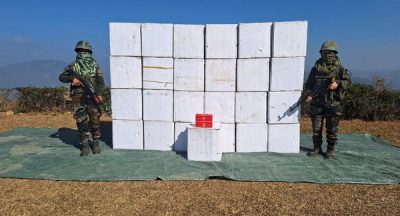Spotting Fakes
From drugs to gadgets, the share of counterfeits in global trade, according to an OECD estimate, stands at 7-10%. The implications worsen with currency counterfeiting. However, fighting fakes has never been easy; the technology behind the spurious has often caught up with, and sometimes even outpaced, that of the authentic. But with non-cloneable identification (nCID), the trend may yet reverse. A Pune-based company, Bilcare, has developed nano-microparticles-enabled authentication that could nail even the best fakes—minuscule amounts of such particles of metal are embedded on an nCID chip on the packaging of a product. Under a magneto-optic sensor, the nCID chip generates a non-reproducible, digitised image unique to the packed unit—‘non-reproducible’ meaning that even the manufacturer of the chip can’t make a copy. The image can then be transmitted through mobile or internet gateways, and the manufacturing site, date and other particulars of the packed unit can be verified. Thus, even the closest lookalike would fail the magneto-optic test.
http://www.financialexpress.com/news/spotting-fakes/1233281?rhheader
Related Posts
Highland experts warn of ‘what not to buy on anti-counterfeiting day and say your money for fake goods could be going towards paying for terrorism, serios crime, slavery and prostitution in UK and around the world’
The Highland Council’s trading standards team is helping to promote World...
Hong Kong smokers to escape proposed tax hike in budget
The tax on tobacco will not rise in the upcoming budget despite a campaign to...
4 Kashmiri men held at airport for smuggling Indian currency
Four Kashmiri men were arrested by the customs officials, in coordination with...
Assam Rifles, Customs seize counterfeit cigarettes worth Rs 42.5 lakh in Mizoram
Champhai (Mizoram) , Ferbuary 22 (ANI): In a major crackdown on smuggling,...





